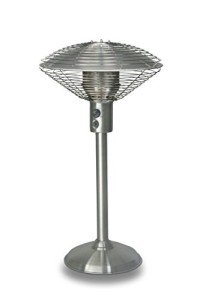What Is Gas Heaters And Why Is Everyone Talking About It?
Understanding Gas Heaters: A Comprehensive Guide
Gas heaters are an important part of numerous homes, supplying heat and comfort during the chillier months. With different types of gas heaters readily available, understanding their performance, benefits, and precaution is vital for users. This article offers a useful overview of gas heaters, how they work, and addresses frequently asked questions on the topic.
Comprehending Gas Heaters
Gas heaters operate by burning gas or propane to produce heat. They are used to warm indoor areas and are frequently considered more efficient than electrical heaters. The main kinds of gas heaters include:
Types of Gas Heaters
Type
Description
Gas
Linked to a gas line and offers constant heat supply.
Propane
Uses propane tanks, making it ideal for areas without gas lines.
Unvented
Burns gas without a vent system, suitable for well-ventilated spaces.
Vented
Expels combustion gases outside, ideal for preserving indoor air quality.
Each type has its distinct benefits and applications, making them ideal for various environments and choices.
How Gas Heaters Work
Gas heaters usually use a combination of burners, heat exchangers, and blowers to disperse heat efficiently. The procedure normally involves:
- Ignition: Natural gas or propane is fired up either by means of a pilot burner or an electronic ignition system.
- Combustion: The gas burns, producing heat which is then transferred to a heat exchanger.
- Heat Distribution: A blower or fan disperses the heated air throughout the space, creating a comfy environment.
- Exhaust: In vented systems, exhaust gases are expelled outside, maintaining security and preventing hazardous accumulation inside.
Advantages of Gas Heaters
Gas heaters provide different benefits that make them a popular choice for heating areas. A few of the key advantages include:
- Energy Efficiency: Gas heaters usually supply more heat per unit of fuel compared to electrical heaters, making them an affordable heating option.
- Rapid Heating: They warm up areas quickly, supplying instant heat when switched on.
- Ecologically Friendly: Natural gas is cleaner than coal and is considered a more eco-friendly choice than electrical heating in many regions.
- Dependability: Gas heaters can continue to operate during power outages, making sure continued convenience during severe weather condition.
Disadvantages of Gas Heaters
While gas heaters have lots of advantages, there are also some drawbacks to think about:
- Installation Cost: The initial setup expense for gas lines or propane tanks can be high.
- Safety Risks: There are fundamental dangers associated with gas leakages and carbon monoxide poisoning, necessitating mindful installation and maintenance.
- Space Requirements: Some types of gas heaters (especially vented ones) need significant space for installation and exhaust systems.
Maintenance Tips for Gas Heaters
Correct upkeep is necessary for guaranteeing the safety and effectiveness of gas heaters. The following tips can help keep ideal efficiency:
- Annual Inspections: Have a certified specialist check the gas heater every year to examine for leaks and ensure proper performance.
- Tidy the Heater: Regularly tidy the heater and surrounding area to avoid dust accumulation, which can affect performance.
- Check Vents: Ensure that all vents are unobstructed and working correctly to prevent buildup of harmful gases.
- Display for Smells: Any uncommon smell, particularly gas, need to be resolved immediately by calling a professional.
FAQs about Gas Heaters
Q1: Are gas heaters safe to use inside?
Yes, gas heaters can be safe for indoor usage as long as they are correctly set up and kept. Vented gas heaters are particularly safe because they expel combustion gases outside, decreasing the threat of carbon monoxide gas poisoning.
Q2: How can I inform if my gas heater has a gas leak?
Indications of a gas leak consist of a nasty smell resembling rotten eggs, hissing sounds, and dead greenery around the location. If you suspect a gas leak, it is important to evacuate the facilities right away and call your gas service provider.
Q3: Do gas heaters need a source of power?
A lot of gas heaters do not require electricity to run, especially those that count on gas. However, designs with fans or electronic ignition systems will require a power supply.
Q4: What should I do if I smell gas near my heater?
If you smell gas, you need to right away leave the area, avoid using any electrical devices, and call your gas service supplier or emergency services from a safe range.
Q5: What is the lifespan of a gas heater?
Normally, gas heaters have a life-span of 10 to 15 years with appropriate maintenance. Regular examinations can help extend their operational life.
Gas heaters can be an efficient and dependable method to keep homes warm and comfortable throughout cold weather condition months. Contemporary Patio Heaters and advantages cater to different needs and preferences. However, understanding their functioning, prospective security concerns, and upkeep requirements is important for any property owner thinking about or currently utilizing gas heating. By following best practices and staying notified, users can enjoy the heat and efficiency of gas heaters for years to come.
